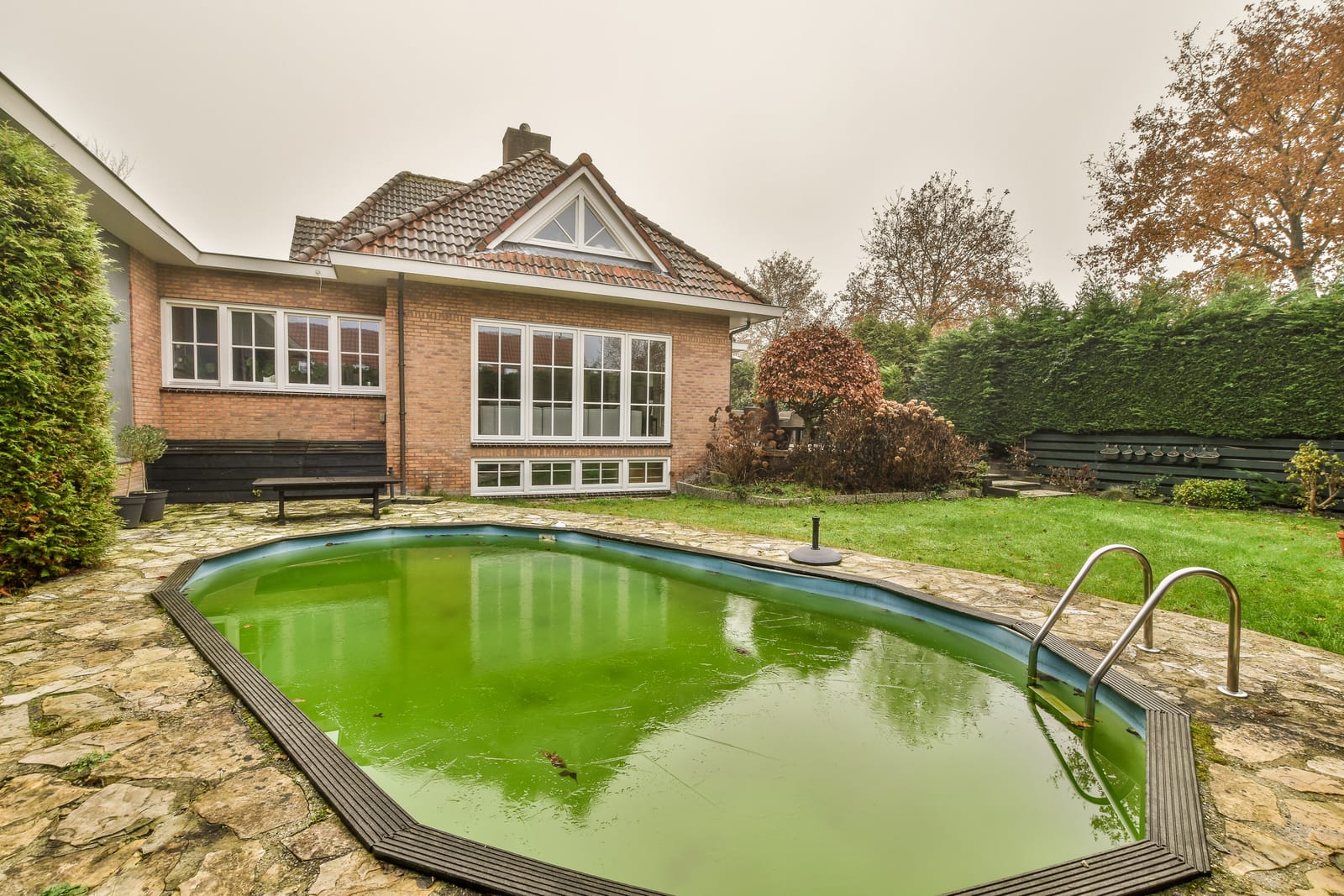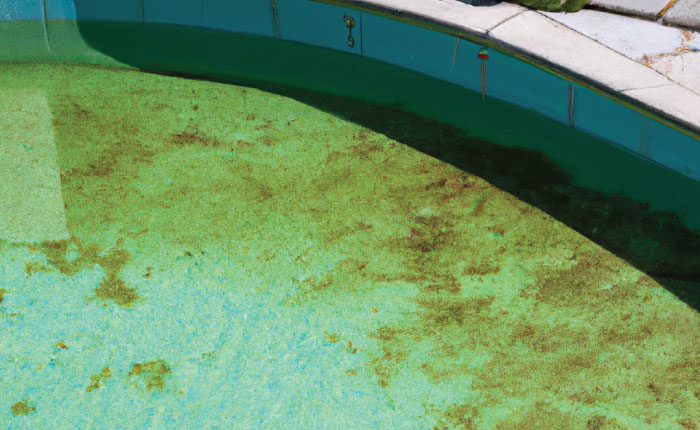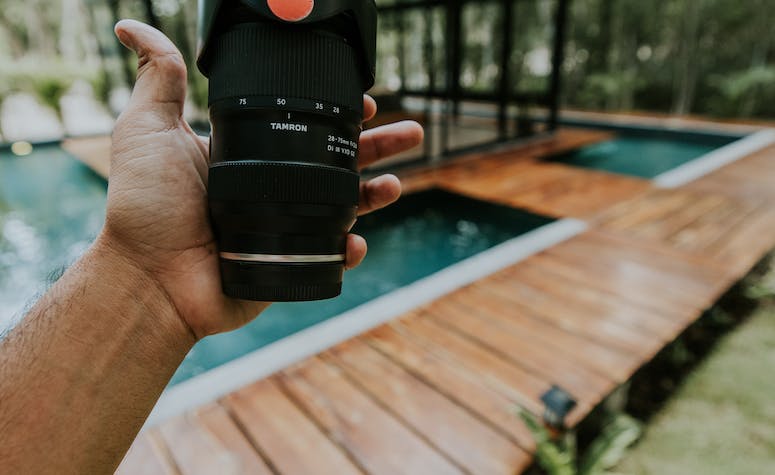
Baking Soda in Pools: Clarity Solution or Just a Myth?
Can baking soda truly clear up a cloudy pool? Dive into the science and practical application behind this age-old trick, and decide if it's right for your pool.

The quest for pristine pool waters has led many to explore a myriad of solutions, with one particular household item making waves: baking soda. Amid the pool care community, the debate rages on regarding the efficacy of this unassuming white powder what baking does to a pool. Is it the clear answer to murky waters or just another drop in the ocean of pool care myths? Navigating the waters of pool maintenance can sometimes be as cloudy as the problem at hand.
Beyond baking soda, there's a vast sea of pool clarity solutions that enthusiasts and experts alike swear by. From specialized chemicals to time-tested home remedies, each claims its rightful place in the arsenal of pool care. In our exploration, we'll dive deep into the heart of the debate, comparing the age-old wisdom of baking soda with other popular clarity solutions, aiming to surface with a clearer understanding of what truly works.
Baking Soda: What Exactly is it?
Baking soda, a household staple found in many kitchens, has applications that stretch far beyond baking. Over the years, its use in pool maintenance has become a topic of discussion among homeowners. But before diving into its potential benefits for pool clarity, it's essential to understand what baking soda is and the properties that make it a unique substance.
Composition and Properties
Known scientifically as sodium bicarbonate, baking soda is a white crystalline powder that occurs naturally in mineral springs. This compound boasts a slightly salty, alkaline taste, resembling that of washing soda. One of its key characteristics is its ability to act as a buffer, neutralizing both acids and bases. This means baking soda can help maintain a stable pH level, which is particularly beneficial in various applications, including swimming pool maintenance.
The intrigue surrounding baking soda's use in pools is well-founded given its versatile nature. By understanding its fundamental properties, pool owners can make informed decisions about its efficacy in maintaining pool clarity. Whether a solution or a myth, the chemistry of baking soda offers a fascinating insight into the world of pool maintenance.
The Science Behind Baking Soda in Pools
The allure of crystal-clear pool water has led to various solutions and methods to achieve it. One popular debate among pool enthusiasts is the use of baking soda. To unravel the truth behind this household ingredient's efficacy in pools, it's crucial to delve into the scientific aspects of its interaction with pool water.
pH Levels and Alkalinity
For swimmers to have the best experience, it's vital that pool water is balanced. This means maintaining the right pH levels and total alkalinity. pH indicates the acidity or basicity of the water, while alkalinity measures its ability to neutralize acids. Baking soda, with its inherent buffering properties, can help increase the water's alkalinity, subsequently stabilizing the pH levels. This stability ensures that the pool environment remains safe and comfortable for swimmers.
Baking Soda vs. Alkaline Boosters
On a chemical level, baking soda is sodium bicarbonate, while many commercial alkaline boosters are sodium carbonate. Though they share similarities, they aren't identical. Baking soda directly raises the total alkalinity of pool water, making it a quick solution for minor pH imbalances. On the other hand, alkaline boosters are more concentrated and can affect pH levels more drastically. Choosing between them depends on the specific needs of the pool. For minor adjustments, baking soda can suffice, but for larger imbalances, an alkaline booster might be the preferred choice.
Baking soda's role in pool maintenance isn't just based on hearsay; there's genuine science behind its effects. By understanding these underlying principles, pool owners can effectively utilize baking soda as part of their pool maintenance strategy, ensuring clear, balanced water that's refreshing for all to enjoy.
Will Baking Soda Clear Up a Cloudy Pool
Improper PH and Chlorine Levels
Your pools PH levels may not directly affect your pool’s cloudiness, but it renders free chlorine ineffective when not properly balanced. And when free chlorine levels go down, it leads to the formation of combined chlorine which is not only ineffective in killing algae, bacteria and other microorganisms, but also turns your pool water cloudy.
High Total Alkalinity (TA)
Monitoring the levels of TA in your pool is also one of the most critical pool maintenance tasks. A high TA leads to scaling, both of which result in pool cloudiness. Lowering the TA levels in your pool involves adding muriatic acid before aerating the pool. These processes raise the PH to recommended levels.
Island Pools and Landscape emphasized the importance of monitoring Total Alkalinity (TA) levels in your pool, stating, "High TA levels can lead to scale buildup and cloudy water, affecting both the pool's appearance and its infrastructure." They recommended regular testing of the pool's water to maintain TA levels within the ideal range, typically between 80 to 120 ppm (parts per million). They also suggested that if TA levels are consistently high, pool owners should consult a professional to address the issue properly and avoid potential damage to the pool's surfaces and equipment.
Chemical Imbalance
Imbalanced stabilizers, such as cyanuric acid (CYA) and high levels of accumulated bromine and phosphate may also result in cloudiness. If

you use CYA often, be sure to balance the chlorine and CYA levels because excess CYA will significantly reduce free chlorine levels.
Can You Use Baking Soda to Clean Up a Cloudy Pool?
The simple answer is No. Baking soda cannot be used to clear up a cloudy pool because it is a base. Bases raise PH levels, which causes the water to turn cloudy. Some people suggest using baking soda as a quick fix to high alkalinity levels, but it’s not reliable as a pool chemical. Chlorine is the only safe chemical you should use to clear your cloudy pool.
Is It Safe to Swim in a Cloudy Pool?
Here are some of the reasons it’s not safe to swim in a cloudy pool
- If the bottom of your pool isn’t visible, spotting struggling swimmers can be hard, which raises the risk of drowning.
- Cloudy pools are full of pathogens and bacteria that can cause stomach problems, urinary tract infections, and eye irritation. E-coli is the most common bacteria you’ll find in a dirty or cloudy pool.
- Cloudy pools are plain disgusting. They indicate that the water contains high amounts of body oil, dirt, sunscreen, sweat, urine, spit, and other gross substances. Therefore it is a good idea to shock your pool.
How to Know Which Pool Chemical Is Imbalanced
To identify the pool chemicals that are imbalanced, you need a reliable, fast and easy-to-use test kit. Most digital test kits are quite reliable. Look for a test kit that will test PH, combined chlorine, total chlorine, calcium hardness, free chlorine, cyanuric acid, total alkalinity, and other metals including copper, iron, and biguanide all at a glance.
Bottom Line
People put baking soda in their pools as an agent to increase alkalinity and PH when they’re lower than recommended levels. But will baking soda clear up a cloudy pool? The answer is a simple no.
Advantages of Using Baking Soda in Pools
In the quest for crystal-clear pool water, baking soda emerges as an intriguing option. As the popularity of this household ingredient in pool maintenance grows, it's essential to weigh its advantages. From cost benefits to its safety profile, baking soda might just be the unsung hero of pool care.
Cost-Efficient Solution
The pool care market is flooded with specialized products, many of which come with hefty price tags. Baking soda, on the other hand, is not only affordable but also effective. When weighing the benefits of baking soda against the costs of specialized pool products, it often comes out on top. It's a testament to the idea that sometimes, simplicity trumps complexity. Though specialized products might boast of unique features, the sheer efficiency and cost-effectiveness of baking soda make it a top contender.
Easy Accessibility
Baking soda's charm doesn't stop at its price. One of its major selling points is how easy it is to procure. Found in nearly every household's pantry, it's a staple that has stood the test of time. For pool owners looking to purchase in larger quantities, baking soda can be found in bulk at various stores, ensuring you're never too far from this multipurpose gem.
Safety Profile
Safety is paramount, especially when it concerns an environment where families, children, and pets often spend their time. Baking soda, with its non-toxic nature, is a breath of fresh air. Its safety profile ensures that even if there's an accidental overuse, there's minimal risk to swimmers. Moreover, parents and pet owners can rest easy knowing their loved ones are swimming in water treated with a safe, natural compound.
In the vast world of pool maintenance, baking soda distinguishes itself with its trifecta of advantages: affordability, accessibility, and safety. As pool owners continue their search for the ideal clarity solution, baking soda, with its myriad benefits, firmly positions itself as a choice worth considering.
Limitations and Concerns
While baking soda has been lauded for its advantages in pool maintenance, it's equally vital to be aware of its limitations and concerns. Like all treatment options, baking soda has its strengths and drawbacks. Understanding these can help pool owners make informed decisions and maximize the benefits while minimizing potential issues.
Over-Adjustment Risks
The beauty of baking soda lies in its ability to balance pH levels in pool water. However, just as it can rectify imbalances, adding too much can swing the pendulum the other way. The aftermath of over-adjustment can range from cloudiness to scaling on the pool surface. Regularly testing the water's pH and alkalinity is essential to ensure that the water balance stays within the desired range. A judicious approach can prevent potential mishaps and keep the water crystal clear.
Temporary Solution
Baking soda, while effective, is not a perpetual solution. Its ability to stabilize pH levels is commendable, but it's worth noting that its effects aren't everlasting. Over time, external factors like rain, swimmers, and organic debris can alter the water's composition. As such, periodic reapplication of baking soda becomes necessary to maintain the desired water quality. Pool owners should be proactive in checking and maintaining the water balance to ensure optimal conditions.
Compatibility with Other Pool Chemicals
The dynamic world of pool chemicals can be intricate. Introducing baking soda to this mix requires an understanding of its interactions with other treatments. It's imperative to ensure that adding baking soda doesn't instigate unwanted chemical reactions. Proper sequencing, such as allowing chlorine to work before adding baking soda, can optimize results and prevent unforeseen complications. As always, research and consulting pool experts can offer valuable insights into creating a harmonious pool chemical environment.
Navigating the realm of pool care requires a blend of knowledge and experience. While baking soda offers a myriad of benefits, it comes with its own set of nuances. By staying informed about its limitations and potential concerns, pool owners can harness its power effectively, ensuring both the longevity of their pool and the well-being of its users.
Baking Soda in Practice: Tips and Tricks
Implementing the use of baking soda in pool maintenance can be a game-changer, but it requires some know-how to get it right. By understanding the nuances of quantity and the best application techniques, pool owners can tap into the benefits of baking soda while ensuring that their pools remain a safe and inviting oasis.
Determining the Right Amount
The amount of baking soda to add to your pool isn’t a one-size-fits-all answer. Factors to consider include the current pH and alkalinity levels, pool size, and even the frequency of pool usage. Larger pools or those with more significant imbalances might require more baking soda than smaller ones or those already close to ideal levels. General guidelines suggest starting with a smaller quantity and gradually adding more if needed. As with all things, it’s a balance—adding just enough to achieve clarity without going overboard.
Application Techniques
Once you've determined the right amount of baking soda, the next step is applying it correctly. A common method is to dissolve the baking soda in a bucket of pool water before pouring it evenly around the pool’s perimeter. This approach ensures even distribution, preventing concentrated areas that could disrupt balance. It's crucial to regularly monitor pH and alkalinity after the addition. Regular testing will indicate if further adjustments are needed and can guide any subsequent treatments.
Making the most out of baking soda in pool care means embracing both knowledge and vigilance. By determining the right amount to use and mastering effective application techniques, pool owners can enjoy clearer and more balanced waters. As with all things pool-related, it's about understanding the process and responding accordingly, ensuring the pool remains a refreshing retreat for everyone.
Navigating Pool Clarity: Baking Soda's Role Revealed
Baking soda's use in pools has long been a topic of discussion, with many touting its clarity-enhancing benefits, while skeptics question its overall effectiveness. Weighing the pros and cons is essential, and while baking soda can offer some advantages, its role as a true clarity solution might be debatable. Beyond the realms of DIY solutions, it's paramount to remember that regular pool maintenance remains the gold standard for ensuring pristine pool conditions. Relying solely on quick fixes, even those as trusted as baking soda, can sometimes overlook the root issues that may affect pool clarity.
As the debate continues, it's vital for pool owners to stay informed, make educated decisions, and prioritize the health and safety of their swimming environments. While experimenting with remedies like baking soda, it's always crucial to do so responsibly, monitoring for any unintended side effects. An informed approach, coupled with regular care, ensures that your pool remains a clear, refreshing sanctuary. Baking soda may play a part, but a comprehensive understanding and consistent maintenance routine truly make the difference.





